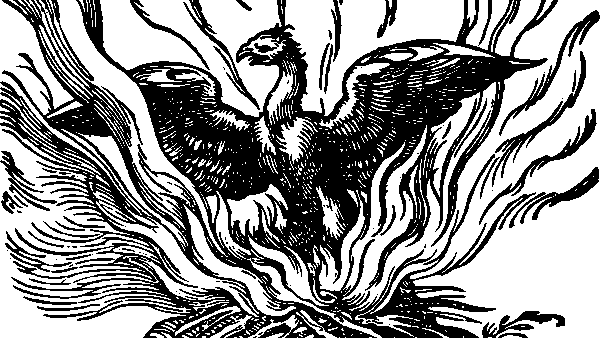In this story, Jorge Luis Borges takes us into the colourful world of knife fights and gangsters on the streets of old Buenos Aires. It’s a compelling portrait and a beautifully constructed story—with a powerful twist in the final few words.
Man on Pink Corner is a big departure in style and content from the other short stories in A Universal History of Iniquity, the first collection by Jorge Luis Borges.
We switch abruptly from an omniscient third-person narrator with an aloof literary style to a first-person narrator full of colloquialisms. Here’s how the story starts:
Imagine you bringing up Francisco Real that way, out of the clear blue sky, him dead and gone and all.
The style fits the subject matter: this is a wild world of knife fights and gangs on the tough backstreets of old Buenos Aires. Our narrator is part of this world—initially, he seems to be on the fringes of it, an unnamed observer of the main action, but everything is turned on its head in the very last few words, and we realise he’s actually not an observer but the unexpected hero of the story.
And when you look back, you realise there were subtle hints throughout the story. The narrator says of Francisco Real right at the beginning:
Truth is, I doubt if I crossed paths with the man more than three times, and all three were on a single night.
We then see Francisco Real, one of the toughest men in the city, arrive in a bar and start a fight with Rosendo Juárez, known as “the Sticker” for the number of men he’d killed in knife fights.
So far, it seems like a standard macho story of two heroes doing battle, but events in Borges stories rarely run along expected paths. For no apparent reason, the Sticker refuses to take up the challenge, even when insulted and provoked by Francisco Real, with the whole bar watching in silence. Even when his girlfriend, La Lujenera, puts his knife in his hand and says, “Rosendo, I think you’re needing this,” he refuses to fight, and finally throws the knife out through the open window.
Interestingly, Borges will give Rosendo’s perspective in a separate story written years later, and it turns out he’s not afraid at all—his motives are quite different. But in this story, his motivation is completely opaque, and everyone in the story despises him as a coward.
The narrator is insignificant to the action—he tangles with Francisco Real when he first walks in but is literally brushed aside. He feels humiliated and ashamed, though, to see this outsider take the place of the Sticker and leave with La Lujenera on his arm. He goes outside, feeling as if everything is broken:
I stood there looking at the things I’d been seeing all my life—a sky that went on forever, the creek flowing angry-like down below there, a sleeping horse, the dirt street, the kilns—and I was struck by the thought that I was just another weed growing along those banks, coming up between the soap-worts and the bone piles of the tanneries. What was supposed to grow out of trash heaps if it wa’n’t us?
When he gets back to the bar, the party is going on as if nothing has happened. But then Francisco Real staggers back in, covered in blood, a knife in his chest, and dies on the floor of the bar.
Our narrator leaves along with everyone else when the police arrive, and the story ends in a quiet passage in which he strolls back to his house and sees a light on in the window. He checks his knife and finds it “just like new, all innocent, and there was not the slightest trace of blood on it.”
And now we realise that the narrator has only told us about two of his encounters with Francisco Real. The third must have been when he killed him, and the light is on in his window, we now presume, because La Lujenera is there waiting for him.
Man on Pink Corner is a beautifully constructed story: the kind of thing that makes you go back and read everything again in a new light. You can see the hints, and everything makes sense, including the narrator’s motivation, his feelings of anger and humiliation, and his attraction to La Lujenera. Everything clicks into place, and it’s a very satisfying conclusion.
The story is also beautifully told, evoking very clearly a world of Buenos Aires knife fighters that was already long gone when Borges wrote the story in the 1930s and seems very distant now. I didn’t feel much attraction for this world of bragging and violence, of men killing other men for no reason other than to assert dominance, of women seeming to exist only as beautiful prizes for the winners of the knife fights. But Borges captures a specific moment in a specific place, and he captures it very convincingly.
I also like how the hero of the story shifts as the story progresses. Who exactly is the “Man on Pink Corner” of the title? At first, it seems to be Rosendo the Sticker, but he turns out to be a coward. Then it seems to be Francisco Real, but he abruptly turns up dead. So in the final words of the story, we realise it must be our unnamed, seemingly unimportant narrator. But how long will he remain on top before someone else comes along and sticks a knife in his ribs to make a point, avenge a perceived slight or build his own reputation?
This post has been part of my Borges Marathon, a seemingly never-ending odyssey through the entire 100+ collection of fictions by Jorge Luis Borges. Please join in by leaving a comment, or feel free to review a story yourself and leave a link to it here.




There are 6 comments
Oh, this sounds good. How many Borges stories have you read now? Surely your marathon must be over halfway?
Yes, it’s a good one. Oh, my marathon is only just beginning, though! This is my eighth review, and Borges wrote over 100 of these things. I’m trying to keep up a pace of one a month, which means I should finish some time in 2030 I think!
You aren’t kidding when you call it a marathon!
Who is the Englishman in this story?
Hi Willie,
The way I read it, the Englishman is just a guy in the bar whose purpose is to show how tough Francisco Real is when he walks in and floors him. His Englishness marks him as an outsider, so hitting him is less important than hitting a local man would be. It’s a dramatic introduction, but it also reserves some heightened drama for when he confronts the local hero, Rosendo.
I’d be interested to hear any other theories on who the Englishman is, though—maybe there’s a deeper significance that I’ve missed.
Borges takes the raw violence of a knife fight and turns it into a meditation on cowardice, performance, and myth-making. The act of killing becomes secondary to the story that follows, where reputation is shaped not by truth but by perception. In this dimly lit corner, honor is a mask, and courage is often an illusion sustained by the willingness of others to believe. Borges suggests that in the end, it is not the facts but the fictions we live by that endure.